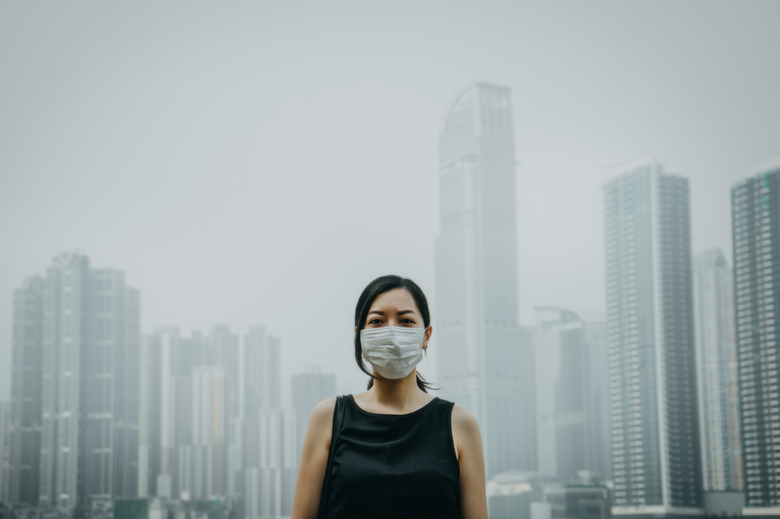How Pollution Affects People
Air Pollution
Air Pollution
Effects of pollution can be short or long term, the severity dependent upon the concentration and period of exposure. Short term effects from air pollution range from minor respiratory irritations to headache and nausea. While mild, such conditions can be serious in children and the elderly. Fossil fuel emissions are the primary cause. During combustion, sulfur dioxide is released. When inhaled, lung tissue is damaged. Long term effects include cancer and cardiac disease. The effects can be more immediate as well. Over four thousand people were killed in London in 1952, following the great "Smog Disaster," a direct result of high pollution. While coal emissions have declined, the U.S. still relies heavily on energy derived from coal.
Water Pollution
Water Pollution
Water pollution has many negative effects. Agricultural runoff has been identified as the primary source by the U.S. Environmental Protection Agency. Pesticide application is of serious concern. Of the 27 most commonly used pesticides, 15 have been identified as carcinogens. Application of fertilizers also has harmful effects, causing algae and invasive growth. Left unchecked, excessive growth can alter water chemistry.
Contamination of water by mercury and heavy metals is of special concern. Many of these contaminants persist in the environment, accumulating in members higher on the food chain. Mercury in its most virulent form, methylmercury, is highly toxic. High mercury levels are responsible for most fish advisories. Pregnant woman who consume contaminated fish put their offspring at risk for adverse neurodevelopmental effects. Mercury is also known to be toxic to human nervous systems. It has been linked to Parkinson's disease, multiple sclerosis, and heart disease. Moreover, mercury has been identified by the U.S. Geological Survey as the leading cause of contamination in U.S. estuaries and lakes.
Warning
Warning
Despite the warnings and overwhelming evidence, people continue to be affected by pollution. Despite passage of the Clean Water Act in 1972, which for the first time regulated ground water and water quality, heavy metals still leach into the aquifers, accumulating to dangerous levels. Agricultural runoff persists. A study by the New York Times reveals that one in 10 Americans has been exposed to contaminated drinking water at levels considered unsafe. As with the environment, pollutants can accumulate in human tissue, later causing neurological issues and cancer. Unless additional regulations are enacted, drinking water will become anything but drinkable
References
Cite This Article
MLA
Rogers, Chris Dinesen. "How Pollution Affects People" sciencing.com, https://www.sciencing.com/how-does-5465105-pollution-affects-people/. 22 November 2019.
APA
Rogers, Chris Dinesen. (2019, November 22). How Pollution Affects People. sciencing.com. Retrieved from https://www.sciencing.com/how-does-5465105-pollution-affects-people/
Chicago
Rogers, Chris Dinesen. How Pollution Affects People last modified March 24, 2022. https://www.sciencing.com/how-does-5465105-pollution-affects-people/
